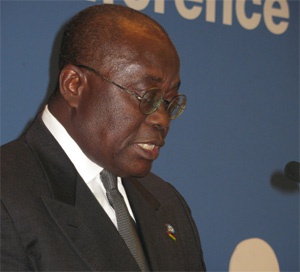With funding of free Senior High School (SHS) education dominating this year’s electoral discourse and with the several interpretations and controversies surrounding its feasibility, the need for a reliable and independent opinion is critical for the electorate to make a decision that has a national impact.
As the major political parties are leaving no stone unturned to justify their positions to maximize their fortunes without tangible statistics to buttress their promises on the funding of free SHS education in the country, The Tide resorted to the World Bank for real facts on the funding of SHS education.
Whilst the opposition New Patriotic Party (NPP) and its flag bearer, Nana Akuffo-Addo are insisting that their government would be committed to the funding of free SHS, the governing National Democratic Congress (NDC) believes free SHS must be a gradual process following the improvement on quality of the basic level of education and then increase in access to SHS.
On the other hand, Dr Paa Kwesi Nduom of the Progressive People’s Party (PPP) is advocating for free compulsory education from kindergarten level to the SHS. But the World Bank in a publication titled: “Ghana 2000 And Beyond-Setting the Stage For Accelerated Growth and Poverty Reduction”, published in 1993 strongly opposed the funding of free senior high education.
The report said in looking at successful development experience an obvious area from where one would try to draw lessons is East Asia as well as parts of Latin America.
The East Asia success is often referred to as “miracle”-which is a misnomer. Instead, East Asia demonstrates what can be achieved with combination of pragmatic and sensible government policies and a disciplined and hardworking population that responds to the right incentives.
According to the World Bank, one area where it found very clear difference between Ghana and some more successful fast-growing economies was in the area of education-particularly Primary Education.
The World Bank was very categorical that Ghana’s Tertiary and Secondary Education System compare favorably with those of fast growing countries at the time push towards rapid growth- at least it did so in growing numbers.
The World Bank noted that where Ghana lags far behind is in Primary Education and overall literacy.
According to the World Bank, most successful countries had achieved near universal literacy as a precondition to rapid growth compared to Ghana’s literacy level of about 55 per cent. The World Bank noted that Ghana is behind several African countries on this score.
The World Bank is emphatic Ghana needs to focus the bulk of its public resources in Education toward this objective and rely more on private resources to finance its growing Secondary and Tertiary programme.
The World Bank recommended that Ghana must also look into less expensive forms of tertiary education.
According to the World Bank, similar choices need to be addressed in the area of health.
It said by comparison with rapidly growing developing countries, identifying Ghana’s long-term health and nutritional goals appears simple, but budgetary and manpower capacity constraints will force choices.
General News of Thursday, 15 November 2012
Source: The Tide Newspaper

















